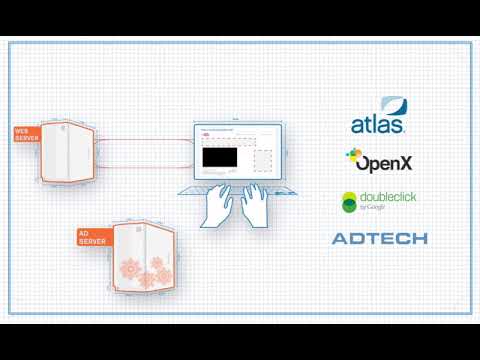- adserver
- 1. Introduction To Adserver
- 2. Users Of Adserver
- 3. Real-Time Ad Selection And Display
- 4. Role In Online Advertising Campaigns
- 5. Types Of Ad Servers: First-Party And Third-Party
- 6. Responsibilities Of First-Party Ad Servers
- 7. Role Of Third-Party Ad Servers
- 8. Importance Of Ad Servers In Website Advertising Management
In today’s fast-paced digital world, where attention spans are shorter than ever, theeffectiveness of online advertising relies heavily on the precision and accuracy of ad servers. These behind-the-scenes powerhouses play a crucial role in selecting, displaying, and tracking advertisements on websites, ensuring that the right message reaches the right audience at the right time.
Ad servers act as the dynamic link between advertisers, publishers, and consumers, offering a seamless experience tailored to each viewer’s preferences. Whether it’s first-party or third-party options, ad servers are the engines driving the ever-evolving landscape of online advertising.
Join us as we delve into the fascinating world of ad servers and unlock the secrets behind their success.
| Item | Details |
|---|---|
| Topic | Adserver: The Reliable Tool for Effective Online Advertising |
| Category | Ads |
| Key takeaway | In today's fast-paced digital world, where attention spans are shorter than ever, the effectiveness of online advertising relies heavily on the precision and accuracy of ad servers |
| Last updated | December 27, 2025 |
adserver
An ad server is a key component in online advertising. It is used by publishers, advertisers, ad agencies, and ad networks to select and display ads in real-time on websites and collect statistics related to ad performance.
Ad servers are responsible for targeting, serving, and collecting data for ads on a website. They also aggregate campaign information across multiple publishers and platforms, providing auditing tools for measuring impression delivery.
Ad servers emerged as a solution to efficiently manage online advertising as the internet grew, and they play a crucial role in managing and tracking advertising campaigns on websites.Key Points:
- An ad server is a fundamental element in online advertising, utilized by publishers, advertisers, agencies, and networks.
- It enables the selection and real-time display of ads on websites, while also gathering data on ad performance.
- Ad servers are responsible for targeting, serving, and collecting data for website ads, as well as aggregating campaign information from various publishers and platforms.
- They provide auditing tools to measure the delivery of impressions and ensure efficient management of online advertising.
- Ad servers emerged as a solution to effectively handle the growing internet advertising sector.
- They play a vital role in managing and monitoring advertising campaigns on websites.
Sources
https://adserver.online/
https://clearcode.cc/blog/what-is-an-ad-server/
https://www.revive-adserver.com/
https://advertising.amazon.com/library/guides/ad-server
Check this out:
💡 Pro Tips:
1. Ad servers can help optimize ad placement on websites by running A/B tests to determine the most effective placement for ads.
2. Ad servers can also incorporate user targeting for personalized advertising, allowing advertisers to reach specific demographics or individuals with their ads.
3. Ad servers can track and measure ad performance through metrics such as click-through rates, conversions, and impressions, providing valuable data for advertisers and publishers.
4. Ad servers can help prevent ad fraud by monitoring and detecting suspicious activities such as click fraud or bot traffic.
5. Ad servers can enable frequency capping, which limits the number of times an ad is shown to a single user within a specific timeframe, preventing ad fatigue and improving user experience.
1. Introduction To Adserver
An ad server is a crucial tool in the world of online advertising. With the exponential growth of the internet, the need for a centralized system to manage and efficiently display ads on websites became apparent.
Ad servers emerged as a reliable solution to address this need.
Ad servers act as a central hub that facilitates the selection and display of advertisements in real-time on websites. They also collect valuable statistics related to ad performance, allowing advertisers to measure the effectiveness of their campaigns.
2. Users Of Adserver
Ad servers are utilized by various stakeholders in the advertising industry. These include publishers, advertisers, ad agencies, and ad networks.
Each of these entities relies on ad servers to manage and run their online advertising campaigns effectively.
Publishers use ad servers to control the ad space on their websites, ensuring that relevant and engaging ads are displayed to their audience. Advertisers leverage ad servers to deliver their ads to the right audience at the right time.
Ad agencies use ad servers to monitor and optimize ad campaigns on behalf of their clients. Ad networks utilize ad servers to aggregate campaign information across multiple publishers and platforms.
3. Real-Time Ad Selection And Display
One of the key functions of ad servers is the real-time selection and display of ads on websites. This ensures that the most relevant and impactful ads are shown to users based on factors such as their browsing behavior and demographics.
When a user visits a website, the ad server analyzes various parameters, including the user’s profile, the content of the web page, and the available ad inventory. Based on this information, the ad server selects the most appropriate ads from its database and delivers them in real-time to the user’s browser.
Fresh look at global CPC and CPM benchmarks.
This dynamic process ensures that users are presented with ads that are relevant to their interests, leading to a higher likelihood of engagement and conversion.
4. Role In Online Advertising Campaigns
Ad servers play a crucial role in the management and tracking of online advertising campaigns. They provide a centralized platform for advertisers and publishers to control and monitor their campaigns, ensuring maximum effectiveness.
Ad servers allow advertisers to set specific targeting parameters and goals for their campaigns. They also enable the scheduling of ads based on time, geography, and user behavior.
Through the collection of comprehensive data, ad servers provide valuable insights into the performance of each ad, allowing advertisers to optimize their campaigns for better results.
Publishers benefit from the use of ad servers by having control over the types of ads displayed on their websites. Ad servers enable publishers to manage multiple campaigns simultaneously, ensuring that ads are delivered to the right audience without overcrowding the website with excessive ads.
5. Types Of Ad Servers: First-Party And Third-Party
There are two main types of ad servers: first-party ad servers and third-party ad servers. Each type serves a specific purpose in the online advertising ecosystem.
First-party ad servers are typically used by publishers to target, serve, and collect data on ads displayed on their websites. These servers are integrated directly into the publisher’s system, allowing for in-depth customization and control over ad delivery.
First-party ad servers are focused on optimizing ad performance within a single website or network of websites.
On the other hand, third-party ad servers play a different role. They aggregate campaign information across multiple publishers and platforms.
Third-party ad servers provide auditing tools and verification services to advertisers, ensuring accurate measurement of impression delivery. These servers offer advertisers a comprehensive view of their campaigns across various publishers and websites, providing valuable insights.
6. Responsibilities Of First-Party Ad Servers
First-party ad servers have several key responsibilities in managing the delivery and performance of ads on a website. These include:
7. Role Of Third-Party Ad Servers
Third-party ad servers provide valuable services to advertisers and agencies in managing and measuring their advertising campaigns. Some key roles of third-party ad servers include:
8. Importance Of Ad Servers In Website Advertising Management
Ad servers play a critical role in the effective management of advertising campaigns on websites. Some key reasons why ad servers are important include:
In conclusion, ad servers are a reliable and indispensable tool in the world of online advertising. They enable publishers, advertisers, ad agencies, and ad networks to effectively manage and measure their campaigns, ensuring maximum impact and return on investment.
By providing real-time ad selection and display, ad servers deliver targeted and relevant ads to users, leading to improved user engagement and conversion rates. Both first-party and third-party ad servers serve different purposes, catering to the specific needs of publishers and advertisers.
The importance of ad servers in website advertising management cannot be overstated, as they streamline processes, optimize performance, and provide valuable insights to stakeholders in the advertising industry.
Advertising Platform for Marketers • Self-Serve DSP Platform • Programmatic Advertising











